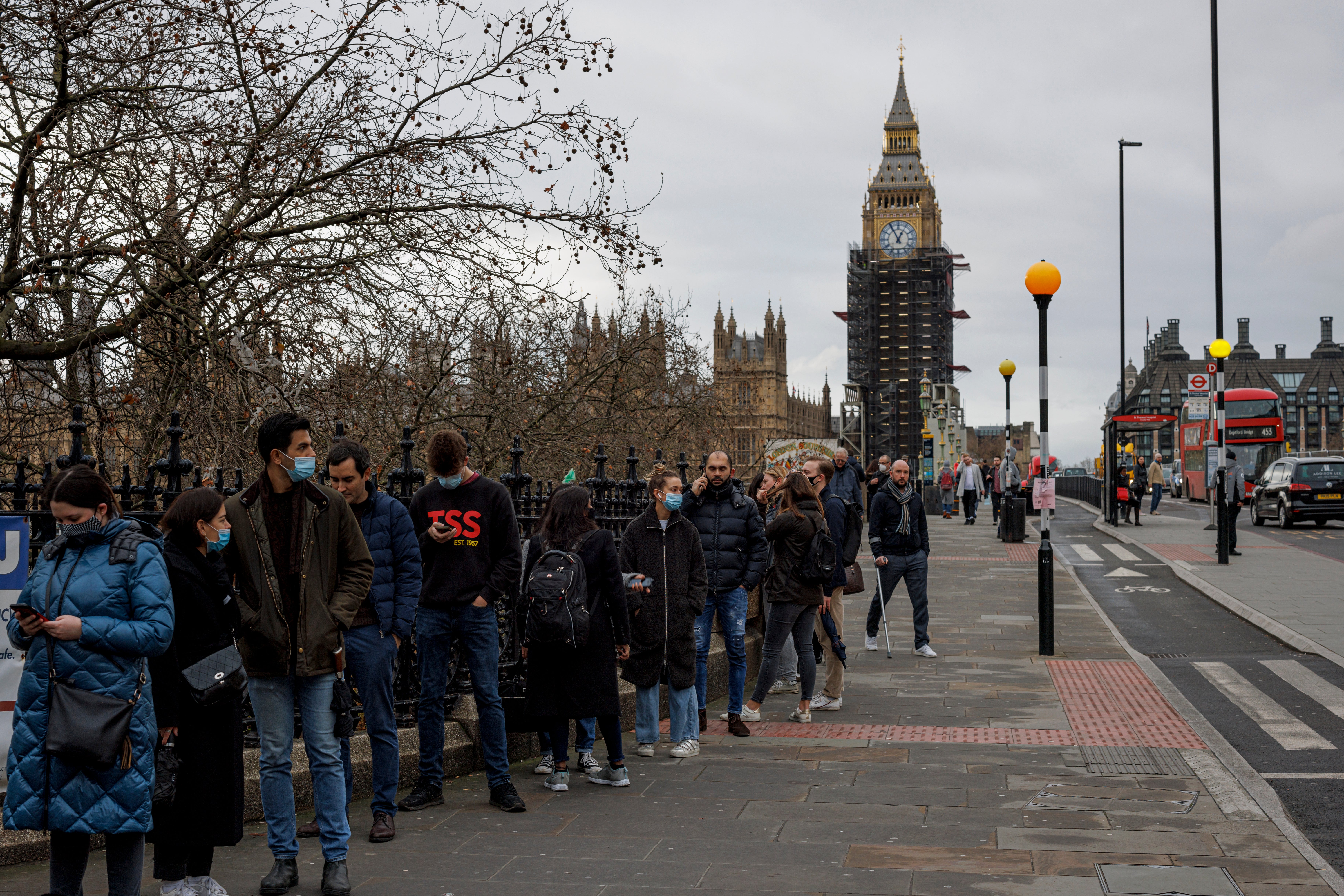Third of Londoners ‘are not vaccinated against Covid’
Some areas of London have a two-dose vaccine rate as low as 39 per cent

Your support helps us to tell the story
From reproductive rights to climate change to Big Tech, The Independent is on the ground when the story is developing. Whether it's investigating the financials of Elon Musk's pro-Trump PAC or producing our latest documentary, 'The A Word', which shines a light on the American women fighting for reproductive rights, we know how important it is to parse out the facts from the messaging.
At such a critical moment in US history, we need reporters on the ground. Your donation allows us to keep sending journalists to speak to both sides of the story.
The Independent is trusted by Americans across the entire political spectrum. And unlike many other quality news outlets, we choose not to lock Americans out of our reporting and analysis with paywalls. We believe quality journalism should be available to everyone, paid for by those who can afford it.
Your support makes all the difference.A third of Londoners have not received any Covid vaccine, it has been reported as the most-infectious variant omicron became the dominant strain in the capital.
The number of people who are unvaccinated is three times as high in London as in the country as a whole, according to analysis of government figures by The Times.
The 14 areas in the UK with the lowest vaccination rates among people aged over 12 are boroughs in the capital.
The data on the government’s website shows that London neighbourhoods with the lowest vaccination rates are in both wealthy and less-wealthy areas.
Fitzrovia and Stamford Hill had some of the lowest rates of vaccination, as of earlier this week.
The area of Fitzrovia East and Bloomsbury West, in central London, has a one-jab rate of 47.5 per cent and a two-dose rate of 39.2 per cent of residents.
Stamford Hill North, in north London, has a one-jab rate of 45.4 per cent and a two-dose rate of 39.3 per cent.
In Mile End West, in Tower Hamlets in east London, 53.1 per cent have received a first dose and 46.1 per cent of people have had the second also.
In Tulse Hill – in the borough of Lambeth in south London – 58.4 per cent of people received a first dose of a Covid vaccine.
Just over half (52.4 per cent) of people in whole of the Lambeth borough had received two doses.
In the borough of Westminster, about 40 per cent of people have not had a single jab.
Similar low rates of vaccination have also been recorded in other English cities, such as Birmingham, Cambridge, Manchester and Oxford.
Omicron has become the dominant variant in London, it emerged on Wednesday. Thirty per cent of Covid cases are caused by omicron, and the NHS has warned that it expects the number of Covid patients in London hospitals to double by the new year.
Other places in the UK are reporting similar rapid growth of the strain that has been found to be more infectious than the previous variant, known as delta.
It has been suggested that the high rates of Covid in London and low rates of vaccination among people over the age of 12 could be driven by children and young adults who are at school.
At a Merton Council meeting yesterday, the local authority’s director of public health Dr Dagmar Zeuner said, according to website MyLondon: “It is quite eye watering numbers [of omicron cases] in London.
“There are about 12,000 cases a day, that is mirrored in Merton with initially 100 to 300 cases a day now.
“The main distribution is still younger people, we had lots of outbreaks in school aged children.
“It is spilling over into younger adults, we assume this is people who are around kids, their parents.”
MPs and peers have been alerted to the potential increased danger that omicron poses for children compared to delta.
Professor Christina Pagel, of University College London, told a meeting of the All Party Parliamentary Group on Coronavirus that there are “indications” that omicron is “more severe for children”.
She added: “Children at best have one vaccine dose, millions of them have none.
"We know that delta ripped through schools this term.
“We have to expect unfortunately that omicron is going to do the same if we don’t do something about protecting schools in January.”
Prof Pagel’s warning came as many schools have reported that they have already shut for December due to concerns about omicron, which had emerged in southern Africa.
Some schools have advised pupils to take all their equipment home in the event that they have to return to online learning in the new year.
Russell Viner, professor of child and adolescent health at UCL, told the Standard that it was important to be “wary and alert” but that previous concerns about children being more badly affected by other variants turned out to be wrong.
He had said: “We are reassured by messages from South African paediatricians that they are not seeing children with severe illness.
“We are seeing no signal at all in this in the UK although very early days. The key issue is that serious illness remains very rare in children regardless of variant.”





Join our commenting forum
Join thought-provoking conversations, follow other Independent readers and see their replies
Comments